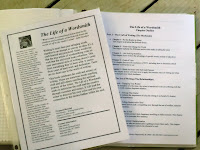I've had several people ask me what to expect when they have a fifteen minute appointment with an industry professional. Many even wonder if they should take advantage of an appointment. My answer? ABSOLUTELY. Even if you don’t have something to pitch, an editor, agent or even well known author can give you valuable insights to help you focus your career goals.
Let me give you some idea of why professionals agree to be part of the faculty.
They want to help you. By and large, those on the faculty at writers conferences are there because they have a heart for helping new writers. They know what it’s like to sit on your side of the table. Others have helped them achieve their goals and now they want to give back by helping someone else.
They’re looking for new writers. The market is constantly changing and there is always room for new writers. Recently I had someone ask me why a publisher is looking for new writers if the book market is shrinking.
- First, it’s not shrinking—it’s changing.
- Second, writers come and go.
- Third, every choir needs more than one voice for each section. It’s the blend that makes the music beautiful.
Now, onto who you should speak with at a conference.
Editor (for books or magazines)—these professionals are a good choice for two reasons.
- One—you have a project that fits their line and want to pitch it.
- Two—they know the market and can give you an idea of their opinion about where it’s headed.
- Three—they can give you input on an idea you have.
- Four—they can give you career advice.
Agent—these are good for the same reasons above.
- One—you have a project that fits who they rep.
- Two—they know the market and can give you an idea of their opinion about where it’s headed.
- Three—they can also give you input on an idea you have.
- Four—they can give you career advice.
Published Writer—these professionals can do a lot of the same things. They can also:
- Commiserate about challenges you’re facing as a writer.
- Give you advice on where a particular project might fit or who in the industry might be looking for something similar.
- Give you encouragement.
You’ll sometimes find other industry folks at a conference, such as marketing professionals, speakers, publicists, etc.
I encourage you to make your appointments and try not to be nervous. They are there to help, not tear you down. And a lot of good things can come from those appointments—way beyond career stuff. I’ve made friends, gotten validation that I’m not really crazy and had the opportunity to be prayed for and to pray for others.
Now it’s your turn. Do you have any questions or, if you’ve been to a writers conference, any advice?
And . . . don’t forget to join the conversation!






















